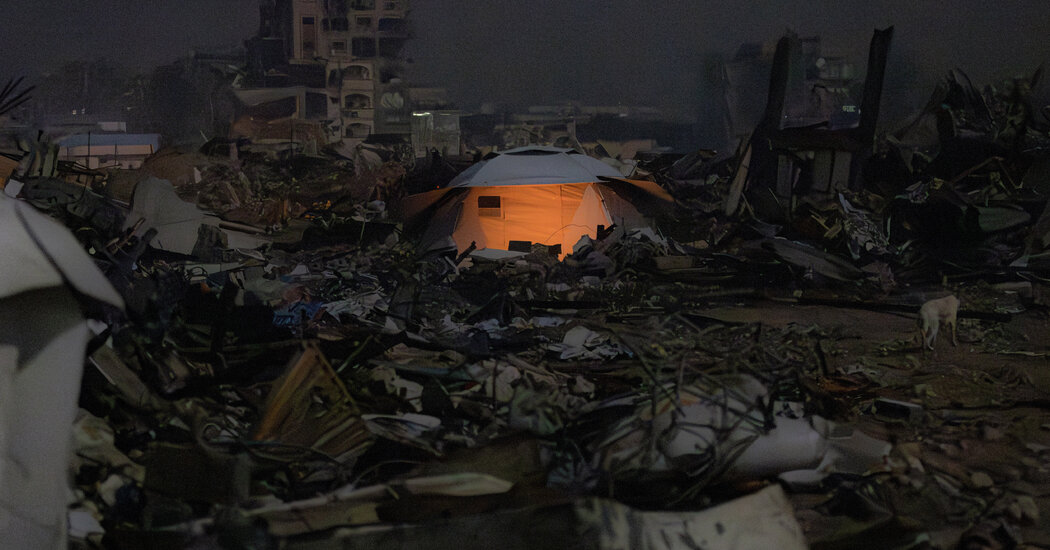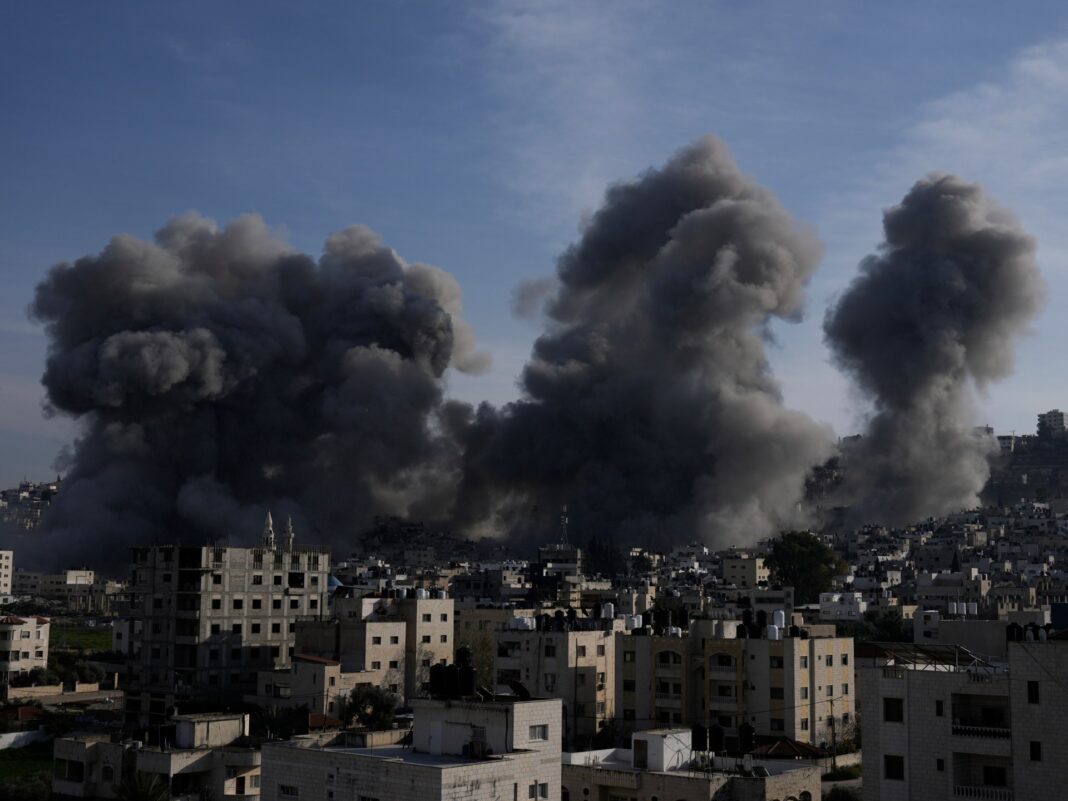Despite competing overnight threats from Hamas and President Trump to derail the truce in Gaza, officials and analysts in the region remained hopeful on Tuesday morning that the arrangement would survive beyond the weekend — though maybe not much longer.
The deal appeared close to collapse when Hamas said it would delay the next release of Israeli hostages. Mr. Trump fired back, pledging “all hell” in retaliation. But within hours, Hamas seemed to soften its stance. And even Mr. Trump’s statement had a caveat that suggested he might not follow through with his threat.
Still, the standoff highlighted the deal’s inherent fragility and the decreasing likelihood that it would last much longer than early March, when the cease-fire is set to elapse unless Hamas and Israel can negotiate an extension.
All the major players have made it harder for that to happen.
Israel’s prime minister, Benjamin Netanyahu, has delayed the negotiations, wary of an extension that would allow Hamas to remain the dominant military force in Gaza. Hamas, though nominally willing to share administrative control with other Palestinian factions, has given no sign that it will disarm.
“It’s likely that they will reach a compromise before Saturday,” said Ibrahim Dalalsha, director of the Horizon Center, a political research group in Ramallah, West Bank. “But this crisis is a prelude for a much bigger crisis that is coming in early March.”
The current standoff stems in part from Hamas’s accusation that Israel has failed to uphold its promises for the first phase of the cease-fire — a six-week period that started on Jan. 19. Under the terms of the deal, Israel was required to send hundreds of thousands of tents into Gaza, among other humanitarian supplies, a promise that Hamas says Israel has not kept.
Speaking on the condition of anonymity to discuss a sensitive matter, three Israeli officials and two mediators said that Hamas’s claims were accurate.
But COGAT, the Israeli military unit that oversees aid deliveries to Gaza, said in a written response that they were “completely false accusations. Hundreds of thousands of tents have entered Gaza since the beginning of the agreement, as well as fuel, generators and everything Israel pledged.”
Regardless, officials and commentators say this aspect of the dispute can be resolved relatively easily if Israel allows more aid to Gaza.
The more serious issue is the widespread perception that Mr. Netanyahu is attempting to undermine the negotiations over whether to extend the truce beyond early March.
Those talks were meant to begin early last week. Instead, Mr. Netanyahu delayed sending a team to Qatar, which is mediating between the two sides, until early this week.
That delegation consisted of three officials who have not previously led Israel’s negotiating effort, according to five Israeli officials and an official from one of the mediating countries. And their mandate was only to listen, not negotiate.
According to two of the officials, the Israeli delegation listened to a general Qatari proposal about the next phase of negotiations, then announced that it would return to Israel.
That created the perception that Mr. Netanyahu was playing for time rather than seriously trying to extend the truce.
All of the officials spoke on the condition of anonymity to discuss the private talks more freely.
Asked for comment, Omer Dostri, a spokesman for the prime minister, said that Mr. Netanyahu was “working tirelessly to return all hostages held by the Hamas terrorist organization.” Mr. Dostri added that Israel would send a negotiating team to discuss the deal’s extension after Israel’s position had been set by the cabinet.
But Mr. Netanyahu has often said that Hamas will not remain in power at the end of the war. And key members of Mr. Netanyahu’s governing coalition have called repeatedly to resume the war to oust Hamas, despite calls from much of the Israeli public for an extension of the truce to free more hostages, even if it leaves Hamas in power.
Hamas’s threat on Monday was an attempt not only to accelerate aid deliveries to Gaza, analysts said, but also to force Mr. Netanyahu to negotiate earnestly.
It was also most likely a response to Mr. Trump’s recent statements about depopulating Gaza, which envisage no future for Palestinians, let alone Hamas, in the postwar territory.
Hamas did not immediately respond to a request for comment.
Michael Milshtein, an Israeli analyst of Palestinian affairs, said, “There’s an anger among Hamas about the demands of both Netanyahu and Trump that Hamas will be kicked out of Gaza.”
“The announcement yesterday was a kind of a signal that, if you continue demanding this, there will be several dramatic crises,” Mr. Milshtein added.
Natan Odenheimer and Gabby Sobelman contributed reporting.


